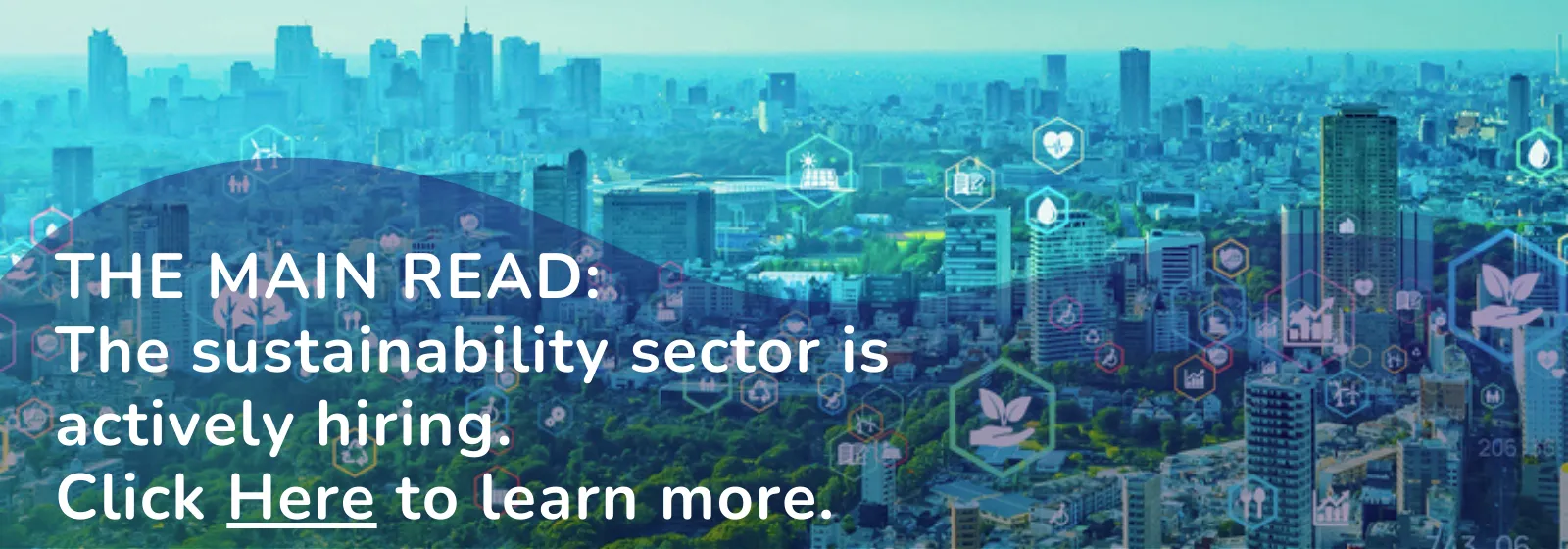As the climate crisis becomes more significant with every passing day, forging a career in sustainability ensures your work positively impacts our collective future. With several fascinating green jobs to explore, ranging from sustainability consultant to landscape architect, finding your place in this imperative industry is hugely rewarding.
Supported by a career in the sustainability sector, you’ll be perfectly positioned to address some of the global community’s most pressing issues. Here, we dive into the essential skills needed to succeed in the space. Plus, we highlight a selection of insightful tips that reveal how you can find the sustainability job of your dreams.
Looking to switch to a new industry? Explore over 100,000 job opportunities on MyCareersFuture.
Essential skills in the sustainability sector
Fighting climate change on the front lines is an incredibly worthy career choice. However, you’ll need to develop a well-rounded skillset whether working in a scientific role, an engineering position or from an operational perspective. Consider these talents to enhance your performance.
1. Communication
Communication is key when discussing sustainability. If you’re working in a public-facing role, engaging and educating people is essential to your success. By communicating your ideas clearly and inclusively, you can convince people to replace harmful habits with a more sustainable approach.
Similarly, sustainability experts often work internally at organisations to encourage them to adopt an eco-conscious philosophy. With high-level communication skills, you can convince employees across the hierarchy to commit to your sustainable ideas that improve efficiency and reduce wasteful emissions.
2. Creativity
Changing minds is a long and complicated process. While you might consider sustainability science incredibly convincing, getting others to take action on your suggestions can require an innovative solution. Don’t overlook the need for creativity in your everyday work.
This approach to problem-solving can mean the difference between having your ideas accepted or ignored. For example, take a judgement-free approach to brainstorming sessions, where team members can share their perspectives.
3. Business acumen
It may be wishful thinking to hope that corporate decision-makers automatically take to new ideas. But through carefully considered pitches, you may be able to change their mind.
With the right approach, you can highlight cost and performance calculations that show why adopting sustainable measures is good for business too. Developing outstanding business acumen can help workers in the sustainability sector achieve their goals.

How to find a green job in Singapore
As the number of green jobs available grows, it’s easier than ever to find a rewarding role that suits your environmental passions. Check out these tips to discover the ideal position.
1. Expand your horizons
As the field of sustainability continues to expand, you need to remain in touch with how changes are sweeping across the industry. According to the United Nations, sustainable development has three core pillars: economic, social and environmental.
By learning to appreciate these factors and how they relate to each other, you can help people and organisations live more sustainable existences. Meanwhile, your comprehensive knowledge of the issues makes you an increasingly attractive hire.
2. Specialise in an area
Leave your mark on the sustainability sector by focusing your attention on a specific area. By directing your environmental passions in a definitive direction, you can give your career a boost.
If you’re making a mid-career switch, your existing experience might be the best place to start. For example, former lawyers can help businesses enhance their corporate governance practices, while computer engineers can build tech-forward solutions.
3. Focus on green skills
If you’re keen to work in the sustainability sector, you probably already have a sharp awareness of the environment and the challenges it faces. However, as new climate policies and commitments change the nature of work, many job listings demand increasingly diverse green skills.
Green skills are the knowledge, technical abilities and values you can bring to your role and organisation to reduce environmental impact and cultivate sustainability. These can include science, engineering and technical skills, monitoring of compliance, and operations management, as well as soft skills such as design thinking, adaptability and resilience.
To keep up with this change, you can enrol in a green-focused training programme or take an active approach to self-learning. Plus, remaining aware of the green economy’s direction means you can identify and apply for exciting jobs at an early stage ahead of the competition.
















